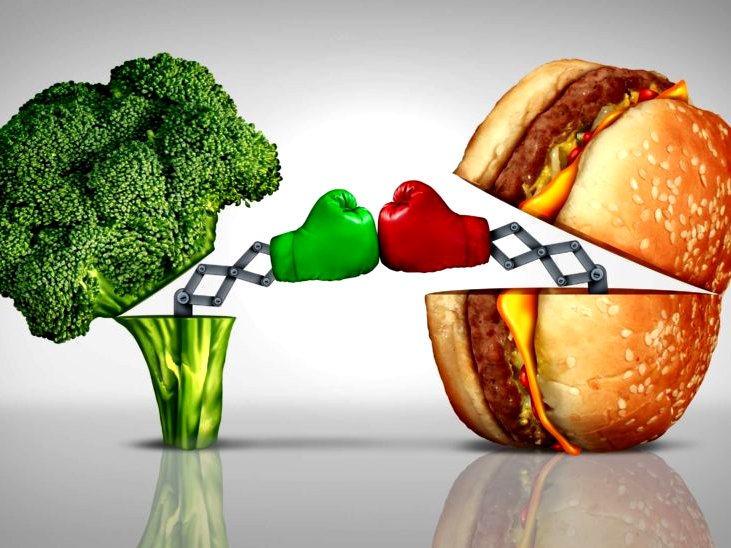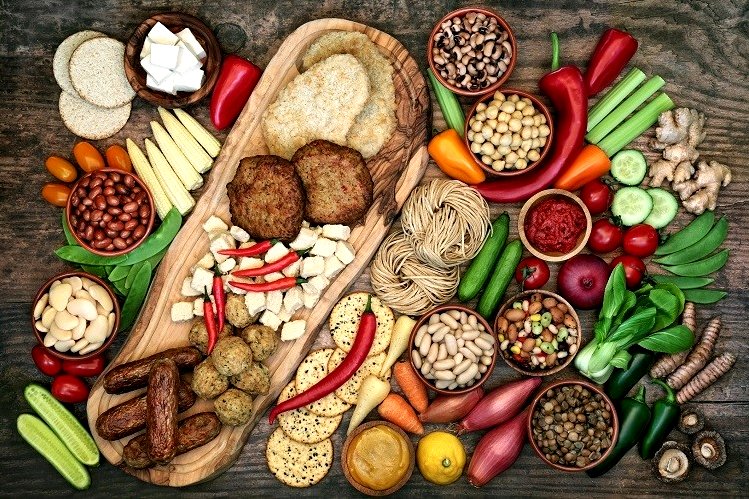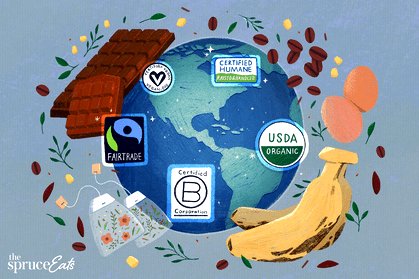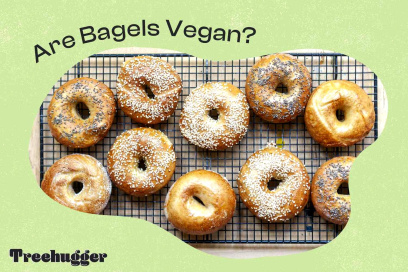As we seek ways to enhance our health, energy levels, and overall well-being, a fundamental question keeps surfacing: "What should I eat according to my natural instincts?" Despite all of the diet fads available today, we still lack clarity into which nutrients our bodies need for proper functioning.
Although an omnivorous diet is widely lauded as being natural and sustainable for humans, which means we consume both plant- and animal-based foods, one must still ask whether this choice is truly the optimal one. When considering alternative food sources like plant-based meals or sustainable options such as ethical or sustainable options before making decisions regarding which would most effectively suit their bodies.
In response to these queries, this article explores the intricate details behind what humans should eat naturally. By investigating pros and cons of an omnivorous diet, plant-based options, sustainable food selection practices and ethical and responsible purchasing choices; we can gain an insight into each diet option's possible impact on our health and overall wellbeing.
As soon as you reach the end of this article, you'll have an increased understanding of which food choices are appropriate for you and how to make informed choices that promote a more healthier and happier lifestyle. Whether your preferences tend towards vegetarianism, veganism or being omnivorous this article will provide you with guidance and insight needed to make an informed decision - let's embark on this exciting journey together!
I. The Natural Human Diet: What Does it Mean?
An omnivorous diet is an intricate part of human existence that remains puzzling. This term describes our capacity to consume both plant- and animal-based foods, yet its legacy remains controversial. Although early humans subsisted on whatever sources of sustenance they could find, whether meat was part of their diet remains an ongoing debate.
Today, even without wild hunting practices, animal-based products remain an integral component of many diets. Unfortunately, research indicates that overeating animal products is hazardous to our wellbeing; one major drawback of meat-centric diets being their high concentration of saturated fats which have been linked with heart disease, elevated cholesterol levels, diabetes and obesity. By contrast, plant-based diets offer numerous health advantages, including lower saturated fat content as well as reduced risks of heart disease, diabetes and certain cancers.
Ethical Considerations
Furthermore, ethical considerations surrounding animal-derived products merit close scrutiny. Modern farming practices - animal agriculture included - have an immense environmental footprint; contributing significantly to greenhouse gas emissions, deforestation and water pollution as well as animal cruelty. The meat and dairy industries play a pivotal role in this regard.
Opponents of alternative diets
Opponents of alternative diets contend that meat consumption has long been an integral component of human digestive systems and essential for overall health and well-being. According to this view, humans evolved with meat as part of our diet; however, substantial empirical evidence does not exist to support such claims; early humans might have relied heavily on meat for sustenance; however, modern humans have access to other sources of nutrition so we no longer depend on meat as our sole source of sustenance.
Conclusion
As is evident from this discussion, animal-derived products may form part of a healthy diet; however, excessive consumption can cause various health problems. Therefore, understanding how meat and dairy consumption impact both our environment and health is paramount to making informed nutritional choices with integrity. While an omnivorous diet is part of human nature and has its own distinct set of advantages, balancing our intake with plant-based alternatives as well as ethical considerations is key for making informed and ethical choices about nutrition.
Learn more about The Natural Human Diet on ChrisKresser.com.II. The Omnivorous Diet: What Does it Mean?
Plant-based meals have seen exponential growth over the years and it is easy to see why. A plant-based diet encompasses food from plants like fruits, veggies, nuts and legumes - although initially this may appear daunting. But this type of diet provides essential nutrition as well as health advantages which cannot be discounted.
Advantages of Plant-Based Diets
Plant-based diets boast numerous advantages, including their reduced content of saturated fats, cholesterol and sodium which, when consumed in excess, can contribute to serious health problems like heart disease. Furthermore, plants contain plenty of fiber, vitamins and minerals which have proven helpful in lowering risk factors associated with chronic illnesses like diabetes, cancer and heart disease.
Studies indicate that adding plant-based meals to your diet can facilitate weight loss and reduced levels of blood sugar - two key elements in lowering diabetes risks. Furthermore, eating these plant-based foods will help you to keep a healthy weight by decreasing obesity-related risks and ailments.
Plant-based diets outshone animal-based ones when it comes to sustainability and ethics, especially regarding resource consumption such as land, water and energy consumption. Thus it becomes simpler for people to switch over for ethical motives like animal welfare concerns.
Delicious Alternatives
Switching to plant-based meals may seem intimidating at first, especially for those new to it. But with delicious alternatives such as fresh fruits, legumes, whole grains and nuts available as vegan food sources; plus there are various plant-based meat substitutes such as tofu tempeh or seitan that provide an impressive meaty experience!
Conclusion
Plant-based foods offer many health advantages, from reduced rates of chronic disease and ethical and environmental considerations, to ethical sustainability benefits. Implementing one or two plant-based meals each week would be an important step toward creating a more equitable food system - it's time to incorporate more plant-based meals into your dietary regime for both yourself and the planet!
Read more at The Seattle Times.III. Plant-Based Meals: A Healthier Choice?
Sustenance involves an intricate web of environmental and ethical considerations that must be thoroughly assessed for an ethical dining experience. One such area is animal agriculture, an industry responsible for emissions of greenhouse gasses, deforestation, and even water pollution - in addition to cruel treatment of animals raised for consumption as food sources. By choosing plant-based options instead, one can significantly lower their carbon footprint while participating in more responsible food systems.
The Importance of Ethical Choices in Sustenance
Ethical choices are integral to creating a sustainable food journey, as the practices employed within animal agriculture can often be brutal and deplorable - from cramped living conditions to unthinkable physical abuse. Therefore, it is our obligation as food consumers to choose more humane alternatives over animal-derived items.
Plant-Based Options vs. Animal Agriculture
Today's market provides nourishment options that meet the rising demand for sustainable and ethical choices in sustenance choices. Plant-based proteins like legumes, nuts and soyfoods provide adequate protein intake. Furthermore, sustainably raised animal products like free range chicken eggs and grass fed beef may lower cruelty levels while simultaneously decreasing carbon footprints to benefit global wellbeing - specifically eggs chicken and beef produced sustainably have far fewer negative environmental and ethical ramifications.
Taking Bigger Steps for Change
Individual consumer choices are just the starting point; we can have more of an effect by taking affirmative steps on a larger scale, like supporting farmers' markets or eating seasonal produce. Advocating for sustainable and ethical food policies with those responsible is also vitally important.
By opting for sustainable and ethical food systems we can play our part in shaping a healthier planet while improving personal wellness and well-being.
Becoming an Informed and Conscious Consumer
As ethical and sustainable considerations of our dietary nutrition become an integral component of life, consumers have an obligation to become informed and conscious consumers who understand not only what we consume but its source and the effects on both the environment and other living organisms.
IV. Sustainable and Ethical Food Choices
Perplexity and burstiness are essential elements when writing engaging content that captures reader attention. Here, we'll examine the advantages of sustainable nutrition - an umbrella term covering both its environmental impact and nutritional aspects - which is a complex subject in its own right.
Primary advantages of sustainable nutrition
One of the primary advantages of sustainable nutrition lies in its capacity to reduce carbon footprints due to its association with plant-based diets. By using fewer resources for production, greenhouse gas emissions released into the atmosphere are drastically decreased. Moreover, by forgoing animal products altogether, our impact on Earth decreases significantly.
Sustainable nutrition also brings numerous health advantages. By choosing plant-based foods rich in fiber, vitamins, and minerals as part of this lifestyle, sustainable nutrition helps us make informed choices regarding our food consumption that may reduce risks of chronic diseases like heart disease, diabetes and certain cancers.
Sustainable nutrition offers economic advantages too; purchasing locally-sourced food saves money and supports local farmers and food systems while cutting shipping costs. and energy expenditure for transportation and storage can make healthy options more accessible to consumers. 
Increased awareness
Sustainable nutrition can lead to greater awareness of our food choices' environmental and health impacts. By paying closer attention to where they come from, their growth process, producers, waste reduction practices, and how our efforts affect planet Earth's future.
Holistic solution
At its core, sustainable nutrition is a fundamental concept with numerous advantages for both our bodies and the planet we inhabit. By transitioning towards more plant-based diets, sustainable nutrition provides a holistic solution to protect both future generations of planet earth as well as improving health, mindfulness, and economic benefits for ourselves and future generations alike.
"Sustainable nutrition is not just a lifestyle choice but a moral and ethical imperative in a world where the decisions we make about our diets impact the earth, animals, and future generations. By embracing sustainability, we can help ensure a brighter and healthier future for all."
Conclusion
Understanding the complex nature of natural human diet is complex, requiring considerable intellectual depth to fully appreciate. Exploring this topic requires taking an in-depth and balanced approach - taking into account health, environment and animal welfare considerations when making decisions like whether to consume animal-based products or switch to plant-based eating is important when making such choices.
An effective plant-based diet offers compelling health and environmental advantages, from reduced chronic disease prevalence and food system sustainability, to ethical eating practices that support sustainable farming systems. While to achieve true change it may require cutting out meat and dairy entirely, making conscious and deliberated decisions regarding types and quantities consumed along with sustainable alternatives can make significant strides toward creating a better world and healthier lives.
As individuals take a more mindful and conscious approach to food decisions, critical steps can be taken toward creating an ecologically conscious food system that supports our future lives. There is no one-size-fits-all diet; individual needs need to be acknowledged. By carefully considering our dietary patterns and their impact on both our environment and health, informed decisions will allow us to contribute positively towards creating an ecologically conscious food system.




